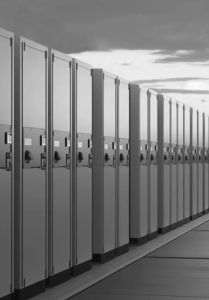Expectable enough, the heralded Government restructuring and the announcement of the future three deputy prime ministers and their prerogatives triggered numerous speculations among journalists and analysts. Commentaries mainly refer to the hidden reasons that prompted the establishment of these positions and the appointment of these particular people and not of others to the respective positions.
Well, the first question would be if we really need analyses and commentaries. After all, the simplest way to find out the reasons behind the Government restructuring is to ask those involved in it: the prime ministers, the ministers and the president. But, as we well know already, politicians are reluctant to tell everything they know and are not necessarily aware of the significance and consequences that their decisions have in the public's eyes.
For instance, a popular belief among analysts is that The Social Democrat Party (P.S.D.) is formed of two large groups: "Ion Iliescu's people" and "Adrian Nastase's people" - two competing groups trying to snatch key positions in the administration from each other. In line with such belief, the appointment of a presidential advisor to the position of deputy prime minister would indicate that Iliescu's control over Nastase has strengthened and that Cotroceni Palace has secured a victory over Victoria Palace in the alleged battle between them.
On the contrary, the representatives and supporters of the opposition do not distinguish between the various groups within the ruling party. To them, the new positions and the new appointments do nothing but augment the problems related to the country's European accession - which is actually the top concern of the current administration.
To the supporters of P.S.D. and The Government, the new structure of the latter has the role of allowing the prime minister to focus on nothing but the electoral campaign, whereas Ioan Talpes' appointment as deputy prime minister appears to them as proof of the good cooperation between Ion Iliescu and Adrian Nastase, which is indispensable for winning the elections.
Consequently, analyses and commentaries will confirm, to analysts and the public alike, the opinions they already have on this matter. Nevertheless, these analyses and commentaries can bring forth something more than a confirmation. There is an internal logic of politics and a good analysis can reveal it. By reorganizing itself, The Government reveals its immediate political priorities.
The first priority is European accession, which, for the time being, means to strengthen the rule of law, to fight corruption and to acknowledge individual rights and press freedom. As deputy prime minister, it is Ioan Talpes' job to channel the two centers of influence in the Romanian politics - Ion Iliescu and Adrian Nastase - towards accomplishing the no. 1 objective of this administration: concluding negotiations with E.U. this year. This decision is indeed a courageous one as failure to accomplish this objective would take a significant toll on the two foremost important men of the current ruling party. Contrary to what most commentators believe, I think that P.S.D. is now putting all its eggs into one basket, gambling its electoral and political interests on an uncertain national objective.
The second priority of this administration is the real economy. The second deputy prime minister is the incumbent minister of Economy and Trade. It is for the first time since 1990 when the minister of Economy is not focusing on macro economy, but on the real economy. Instead of the minister of Finance or a possible minister of Reform, the minister of Economy is going to be deputy prime minister. This is an answer to the need to channel governmental actions towards "the functional market economy" and whatever is left to privatize (that is, the autonomous state corporations). It is obvious that the prime minister regards macro stability and privatization as problems in the process of being solved and wants to intensify governmental actions aimed at the real economy - the real problem of the Romanian economy.
The third priority resulting from the Government's recent decisions is of a social nature, but the appointment of Minister of Administration and Home Affairs Ioan Rus as deputy prime minister indicates a quite novel concept. It signifies that social policies, instead of being focused, as usual, on redistribution - pensions, salaries, allowances, benefits, health insurance etc - will be focused on making the administration function better, which, too, is a clear requirement for E.U. accession.
In short, The Government, P.S.D. and President Iliescu have joined hands and are focusing their combined effort - for the first time since the year 2000 - towards European accession. Domestic policies have therefore moved to the second entry in the priority list, and not just anytime, but in an electoral year!
Also for the first time, The Government, P.S.D. and President Iliescu seem to regard domestic reform as an external image priority. This is exactly what The E.U. has been asking for, though it is not certain whether the country has the best short-term strategy possible. Expert studies indicate that it takes between six months and several years for a state of fact to have a clearly shaped image. In our case, the new state of fact does not exist yet...
Through this restructuring - which would be more suitable for a government that has just taken office rather than for one that is about to conclude its term - the current administration is gambling both its domestic and international chances for a high stake in a bet that comes with medium-to-low chances of success. Their starting premise is that, for the past three years in power, this administration has made the local administration, and the local political organizations loyal enough to ask them now to act more in the service of the national interest and possibly less in the service of their own interests. In an electoral year, this is quite a gamble.
All we can do now is wait and attentively watch the results, which will probably appear shortly, probably in May or June, before the local elections and very close to the international elections.

























































